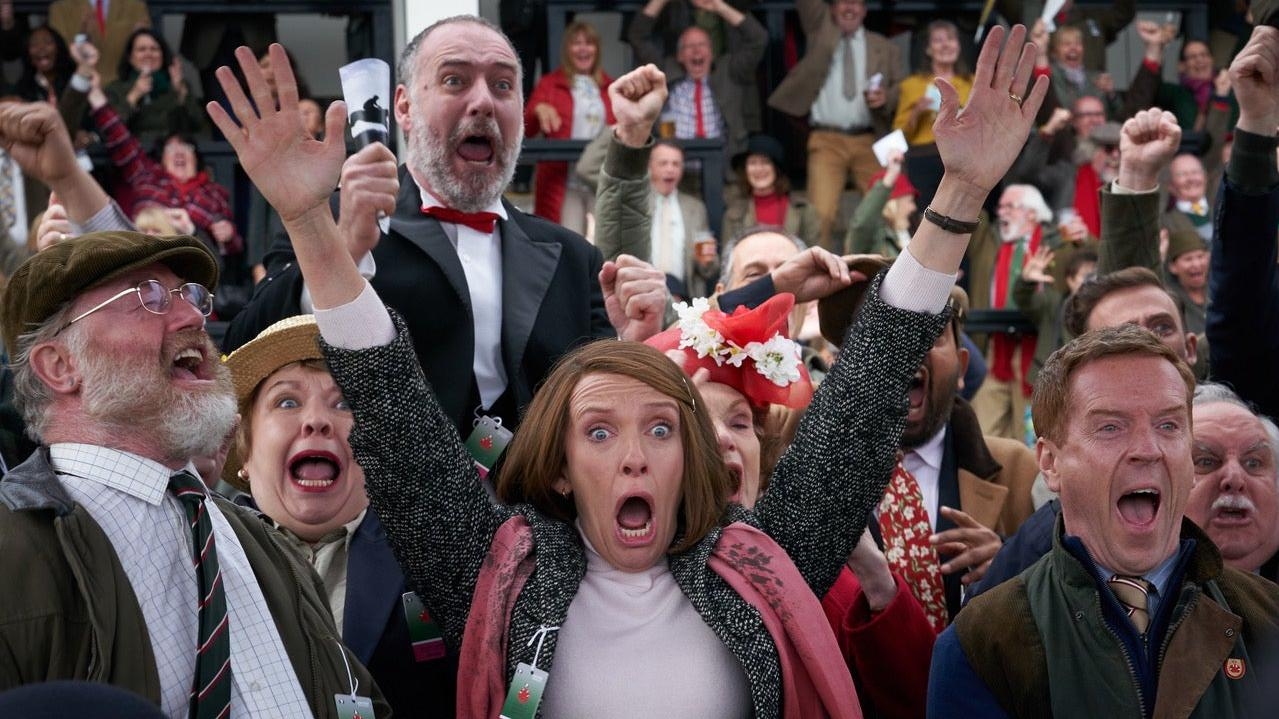The feel-good Dream Horse is a true story we’ve heard before

The opening scenes of Dream Horse paint a depressing picture of the life of a middle-aged working-class Welsh couple, the Vokeses. Jan (Toni Collette), former breeder of champion pigeons, works at a grocery store. Brian (Owen Teale), unemployed and missing several teeth, spends all day in front of the TV, watching shows about farming and pointing out the hosts’ glaring errors in matters of animal castration. The dog shows more interest in Jan than her husband, and anything beyond daily routine and boredom seems like a fantasy.
That is, until Jan happens to overhear a local tax account, Howard Davies (Damian Lewis), talking about racehorses. The gears start turning and soon she’s come with a plan. With Howard’s help, she will form a racing syndicate. She and the initially reluctant Brian will use their checking account balance to buy a cheap thoroughbred mare. Locals will be convinced to pitch in for a stud fee to breed said mare with a prizewinning American racehorse. (The strange business of high-end stud farms, where the rich pay exorbitantly for horse sex—strictly horse on horse, of course—is briefly touched on.) The resulting foal will be owned by the group, which soon comes to include the fussy local bureaucrat, the village butcher, a tipsy old fart, and a couple of Howard’s coworkers.
If any of this sounds vaguely familiar, it’s because 1) it’s a true story, and 2) it has already been made into a well-received documentary, Dark Horse. Dream Horse, in other words, belongs to the peculiar subgenre of doc remakes, replacing the talking-head parochial eccentrics with actor-impostors. Therein lies the problem, since a large part of the appeal of the story of Dream Alliance and his unlikely owners is that it already seems like feel-good fiction; although strange-but-true, it adheres to a familiar crowd-film-development-board-pleasing formula.
This is done no favors by Neil McKay’s occasionally clunky script and Euros Lyn’s direction, which has that anonymity that has made “BBC veteran” a critic’s pejorative. (How far things have declined since the 1970s and ’80s, when the Beeb could still be associated with the likes of Alan Clarke, Mike Leigh, and Ken Loach.) The film avoids every potential area of deeper interest: the economic conditions in Jan’s tiny ex-coal-mining community; the mid-to-late 2000s period setting; any nitty-gritty details about what it takes to train or race a steeplechase horse.
Instead, we get characters who talk to each other about how all of this is “more important than money,” and how good they feel “to be part of something important.” They experience success by making big, wild rollercoaster faces at stolid racing footage and chug celebratory pints while belting the Tom Jones hit “Delilah,” which is reprised in an end-credits musical number performed by the cast and their real-life counterparts. Whatever conflicts they may have—money troubles, marital woes—evaporate at the sight of the horse. Some grumblings about the wealthy pass for topicality.
This is not to say that the film is without any grace notes: Teale’s performance as Brian, the grumbling husband, is a fine actor’s showcase. (As for the matter of Collette’s Welsh accent… well, her American sounds a lot better.) Still, there’s nothing surprising in this story of surprise success. It’s the kind of film where the day of a climactic race is introduced with a montage set to “This Is The Day”—though, because this is Wales, it’s a Manic Street Preachers cover and not The The’s original that we hear on the soundtrack. However ingenuous, Dream Horse feels calculated to appeal to the type of viewer who will get up at the end and say, “Well, that was nice, wasn’t it?”